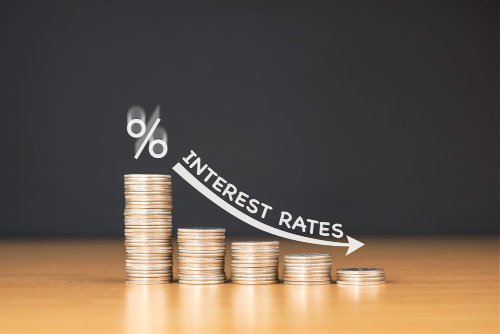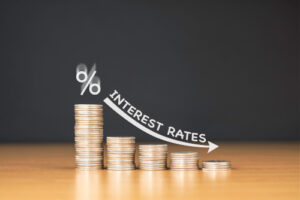Loan
applying for a secured loan, auto loan, benefits of secured loans, collateral, credit improvement, credit score, debt consolidation, financial planning, financial security, HELOC, home equity loan, how to apply for a secured loan, interest rates, loan application process, loan approval, loan collateral, loan documentation, loan repayment, loan terms, loan types, lower interest rates, mortgage loan, personal loans, personal secured loan, refinancing secured loans, risks of secured loans, secured loan, secured loan benefits, secured loan requirements, secured vs unsecured loan, securing collateral, types of secured loans
Admin
Top Things To Know Before Applying For A Secure Loan
Secure Loan When you’re considering applying for a loan, you may come across the term “secured loan.” But what does it really mean, and is it the right option for you? Whether you’re looking to finance a large purchase, consolidate debt, or simply get a better interest rate, a secured loan might be the perfect choice for some borrowers. However, before you apply for a secured loan, there are several key factors that you need to understand to ensure you’re making the best financial decision.
In this article, we’ll walk you through everything you need to know before applying for a secured loan. From what secured loans are, to their pros and cons, and how to apply for one, we’ve got you covered. By the end of this article, you’ll be well-equipped to decide if a secured loan is the right path for you.
Key Takeaways:
- A secured loan requires collateral, such as a house or car, to back the loan.
- Secured loans generally come with lower interest rates, higher loan amounts, and better approval odds.
- Failing to repay a secured loan can result in losing the collateral.
- Shop around for the best terms and understand the risks before committing to a secured loan.
What Is a Secured Loan?

A secured loan is a type of loan where the borrower pledges an asset—often referred to as collateral—in exchange for the funds they borrow. The collateral can be in the form of property, such as a house or car, or financial assets, like savings or investment accounts. If the borrower fails to repay the loan as agreed, the lender has the right to seize the collateral to recover the amount owed.
Secure Loan This is in contrast to unsecured loans, where no collateral is required, and the lender must rely solely on the borrower’s creditworthiness to make a lending decision. Because a secured loan is backed by collateral, lenders are generally more willing to lend larger amounts of money at lower interest rates compared to unsecured loans.
Common Types of Secured Loans
Secured loans come in various forms, but some of the most common include:
- Mortgage Loans: These are loans used to purchase a home or property. The property itself acts as collateral for the loan.
- Home Equity Loans and Lines of Credit (HELOC): These are loans where the borrower uses the equity in their home as collateral to secure funds.
- Auto Loans: In an auto loan, the vehicle you’re purchasing serves as collateral. If you default on the loan, the lender can repossess the car.
- Secured Personal Loans: These loans are backed by assets such as savings accounts, investments, or valuable personal property.
Why Choose a Secured Loan?
There are several reasons why someone might opt for a secured loan. Let’s explore the key benefits that come with applying for a secured loan.
Lower Interest Rates

Because the lender has collateral to fall back on if you fail to repay the loan, secured loans usually come with lower interest rates than unsecured loans. This is particularly beneficial for borrowers who may have lower credit scores, as the collateral provides added security for the lender.
Higher Loan Amounts
Secured loans generally allow you to borrow larger sums of money. This is because the lender is more willing to lend large amounts when there’s collateral involved. If you need to borrow a significant amount—say, for buying a house or a car—a secured loan may be the best route.
Better Approval Odds
For borrowers with less-than-perfect credit scores, a secured loan can be an easier option to get approved for. Since the loan is secured by collateral, the lender’s risk is reduced, making them more likely to approve the loan even if the borrower’s credit history isn’t stellar.
Improved Credit Score
If you manage your secured loan responsibly by making timely payments, it can help improve your credit score over time. Successfully managing a secured loan shows potential lenders that you’re capable of handling debt, which may improve your creditworthiness for future borrowing.
Potential Risks of Secured Loans
| Risk | Description |
|---|---|
| Risk of Losing Collateral | If you fail to repay the loan, the lender can seize your collateral (house, car, etc.) to recover the amount owed. |
| Longer Loan Terms | Secured loans often come with longer repayment periods, which can limit your financial flexibility. |
| Complexity of Securing Collateral | You may need to provide additional documentation, such as proof of ownership or insurance, making the application process more complicated. |
| Impact on Credit Score | Missing payments can severely damage your credit score and lead to repossession or foreclosure. |
| Devaluation of Collateral | The value of the collateral (e.g., property or car) may decrease over time, which could leave you owing more than the asset is worth. |
| Interest Rate Variability | Some secured loans, especially those with variable rates, may increase the interest rate over time, raising the total cost of the loan. |
While secured loans offer numerous benefits, they are not without risks. Borrowers should be aware of the following potential downsides:
Risk of Losing Collateral
The biggest risk with secured loans is the possibility of losing your collateral. If you fail to make your loan payments, the lender can seize your asset (house, car, etc.) to recover the money you owe. This makes it crucial to carefully evaluate your ability to repay before agreeing to a secured loan.
Longer Loan Terms
While secured loans may have lower interest rates, they often come with longer repayment terms. This means that you could be paying off the loan for years, which can tie up your financial resources and impact your ability to make other financial decisions.
Complexity of Securing Collateral
When you offer an asset as collateral, you may be required to submit additional documentation, such as proof of ownership or insurance, to prove that the asset has value. This can make the loan application process more complex and time-consuming than applying for an unsecured loan.
Impact on Credit Score
While a secured loan can improve your credit score when paid off responsibly, failing to make payments can damage your credit score significantly. Since the loan is backed by collateral, missed payments could lead to repossession or foreclosure, both of which have a major negative impact on your credit.
How to Apply for a Secured Loan

Now that you understand the basics of secured loans, let’s walk through the steps involved in applying for one.
Assess Your Financial Situation
Before applying for any loan, it’s important to evaluate your finances. Take a close look at your income, expenses, and existing debt to determine how much you can afford to borrow and repay. Make sure that you can commit to making regular payments for the duration of the loan term.
Choose the Right Type of Secured Loan
Depending on your needs, you’ll want to choose the type of secured loan that makes the most sense for your financial situation. Do you need a mortgage, a car loan, or a personal loan? Understanding the various types of secured loans and selecting the right one is key.
Choose Your Collateral
Next, you’ll need to decide which asset you’ll use as collateral. This is usually an asset that you already own, such as a home, car, or savings account. Remember, the value of the collateral should be sufficient to cover the loan in case of default.
Check Your Credit Score
Even though secured loans are typically easier to obtain than unsecured loans, your credit score still plays a role in the application process. Lenders may offer better terms (lower interest rates, larger loan amounts) to borrowers with higher credit scores, so it’s a good idea to check your credit score before applying.
Shop Around for Lenders
Not all lenders offer the same terms and interest rates for secured loans. Shop around and compare offers from various banks, credit unions, and online lenders. Pay attention to the loan amount, interest rate, fees, and repayment terms to find the best deal for your needs.
Prepare Documentation
Once you’ve selected a lender, you’ll need to submit documentation to support your application. This may include proof of identity, proof of income, proof of ownership of collateral, and any other documents the lender requires.
Complete the Application Process

After you’ve gathered all the necessary documentation, submit your loan application to the lender. If your application is approved, you’ll receive the funds, typically in a lump sum or in installments, depending on the type of loan.
Also Read : Is It Safe to Apply for Instant Online Loans?
Conclusion
Secured loans can be an excellent option for individuals who need to borrow a larger amount of money, have poor credit, or want to secure a loan with a lower interest rate. However, it’s essential to understand the risks, such as the potential loss of collateral, before applying. Carefully consider your financial situation, compare lenders, and choose the right loan product for your needs.
FAQs
1. What happens if I fail to repay a secured loan?
If you fail to repay a secured loan, the lender has the right to seize your collateral to recover the amount you owe. This could mean losing your house, car, or other valuable assets.
2. Can I get a secured loan with bad credit?
Yes, you can often get a secured loan with bad credit. Because the loan is backed by collateral, the lender’s risk is reduced, making it easier for borrowers with poor credit to get approved.
3. How long does it take to get approved for a secured loan?
The approval process for a secured loan varies depending on the lender, but it generally takes anywhere from a few days to a few weeks. The time may be longer if the lender requires extensive documentation or if you’re using a complex asset as collateral.
4. Can I change the collateral for a secured loan after approval?
Once a secured loan is approved, it’s typically not possible to change the collateral. You’ll need to provide accurate and complete details about your collateral during the application process.
5. Can I pay off a secured loan early?
Yes, most secured loans allow you to pay off the loan early without penalties. However, it’s always a good idea to check the loan agreement to confirm whether early repayment is allowed and if there are any associated fees.
6. Is it possible to refinance a secured loan?
Yes, many secured loans can be refinanced if you find better terms or if your financial situation improves. Refinancing may allow you to secure a lower interest rate or extend the repayment term.
7. Can I borrow more than the value of my collateral?
Typically, the amount you can borrow on a secured loan is limited by the value of your collateral. Some lenders may allow you to borrow a percentage of the collateral’s value, such as 70-80%. However, borrowing more than the value of your collateral is generally not allowed.













